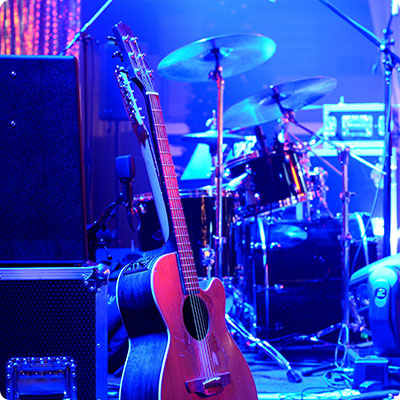
A happy event
The arrival of a newborn is accompanied by various traditions. To announce the birth to the neighborhood, the fascio nascita is hung on the door of the house, a blue rosette if it is a boy, pink if it is a girl. Today, the parents choose the child's name, but in the past, the godfather and godmother were responsible for choosing it. The first son of the family received the name of the paternal grandfather, a practice that is still widespread in Italy today. Baptism is still widely practiced in Catholic families, even those who declare themselves non-practicing.
The family, core of Italian society
In Italy, family ties remain very strong, and the pivot of this social unit is the mamma, the Italian mother. The term "mammism" is used to describe the closeness of the mother to her children. Italians cannot cut the umbilical cord, so we find "big boys" (called mammoni) staying with their mamma
for 30 years or more, or getting married but living a few minutes away from the family home! As for the wedding, it remains a major event in the family life and is often the occasion of a big ceremony. In Friuli, it is sometimes accompanied by traditions that have their origin in the mountain culture. This is the case of the felling of the tree, which consists of the couple sawing a trunk with a two-handled lumberjack saw. This ritual symbolizes the mutual collaboration that the couple will have to show in the face of life's difficulties. Another colourful tradition is still in use in Carnia: the abduction of the wife. During the ceremony, the bride is kidnapped by the best man. Together, they scour the bars of the village while the young groom goes in search of them, and leave open accounts that the unfortunate husband will have to settle. Decidedly badly treated, this one is then assailed by his witnesses who cut his tie in small pieces and sell them to the guests.The educational system
Public school is free and compulsory until the age of 16 and the school divisions are as follows:
The scuola dell'infanzia
is the nursery school, which caters for children from 3 to 6 years old.The scuola primaria
, which lasts 5 years, corresponds to our primary school and is for children from 6 to 10 years old. They have about 30 hours of classes per week, spread over 6 days.The scuola media is the first cycle of secondary education, equivalent to the French collège. It is for 11-14 year olds and lasts 3 years at the end of which the student must pass an exam, the licenza media
.The liceo corresponds to the general secondary education of the second cycle and lasts 5 years. Students can choose between classical, scientific, linguistic or artistic studies. The final exam, the maturità
, corresponds to the French baccalauréat. In addition to the general branch, the educational system also offers technical and professional education. Finally, it should be noted that in both the middle and high schools, classes are held in the morning from Monday to Saturday until approximately 1:00 pm. Unless the child is enrolled in an extracurricular activity, the afternoon is free; this will answer the question that is often asked when traveling in Italy: "Why aren't these kids in school? As for the university system, it is divided into two cycles, of 5 years in total. After the first three years, a three-year degree is awarded (which corresponds to a French bachelor's degree), and then you have to study for another two years to obtain a master's degree ( laurea magistrale ). Friuli Venezia Giulia has two universities. The one in Trieste, the oldest, was founded in 1924, shortly after the annexation of the Veneto Giulia to Italy. The University of Udine, founded more recently (1978), also has campuses in Pordenone, Gorizia and Gemona del Friuli. At the end of the Middle Ages, Friuli had a university in Cividale del Friuli. Founded in 1353 by the Patriarch of Aquileia, it was closed by the Venetians in 1429, shortly after the annexation of the Principality of Friuli to the Republic of Venice.Table fun and soccer
In Italy more than anywhere else, the meal is a moment of conviviality and sociability. The multiplication of courses (antipasti, primo, secondo, dolce, digestivo, caffè
) is perhaps only intended to keep the guests at the table as long as possible! The meal can thus last forever, and brings together families and friends in a moment of sharing.Despite this apparent abundance of food, Italians are not particularly big eaters and the cuisine, while generous, is rarely gargantuan. The Italian is not a big drinker either, consuming alcohol with a natural moderation. This is not new, if we are to believe the manuscripts of the late Middle Ages in which the authors of the peninsula unreservedly criticize the gluttony and propensity to alcohol of their Germanic neighbors!
Food and drink sometimes appear more as a pretext for social bonding. In the late afternoon, the tradition ofaperitivo
is a good example: Italians gather around a glass of wine and goodies to nibble on, and chat happily, sitting on a terrace or gathered around a stand-up table, while distractedly watching the flow of passers-by.The bar is a place of socialization at any time of the day: in the morning, many Italians line up along the counter to swallow an espresso
before going to work, exchanging a few words with the waiter or other customers. There is also a sport that brings together all ages and all levels of society: soccer(calcio), a true national religion! During a match, social distinctions are erased and the tifosi (supporters) unite with fervor to encourage their team, whistle at the opponent who has committed a foul and comment on the actions. Soccer is also a family affair and it is common to see parents with their children in the stands, along with retired fans and groups of teenagers. The atmosphere in an Italian stadium is generally good-natured and hooliganism is rare; attending a game in Italy is a great opportunity to experience the spirit of a community around its national sport.















